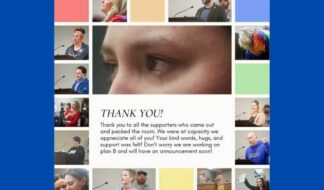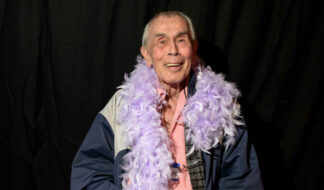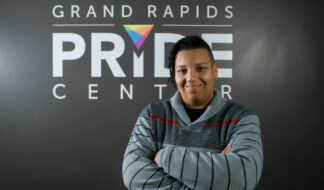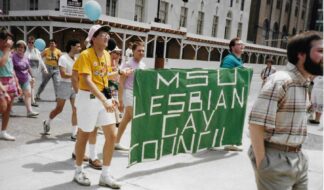Reflections From the Editor: This Pride, Gratitude For Chosen Family Connection
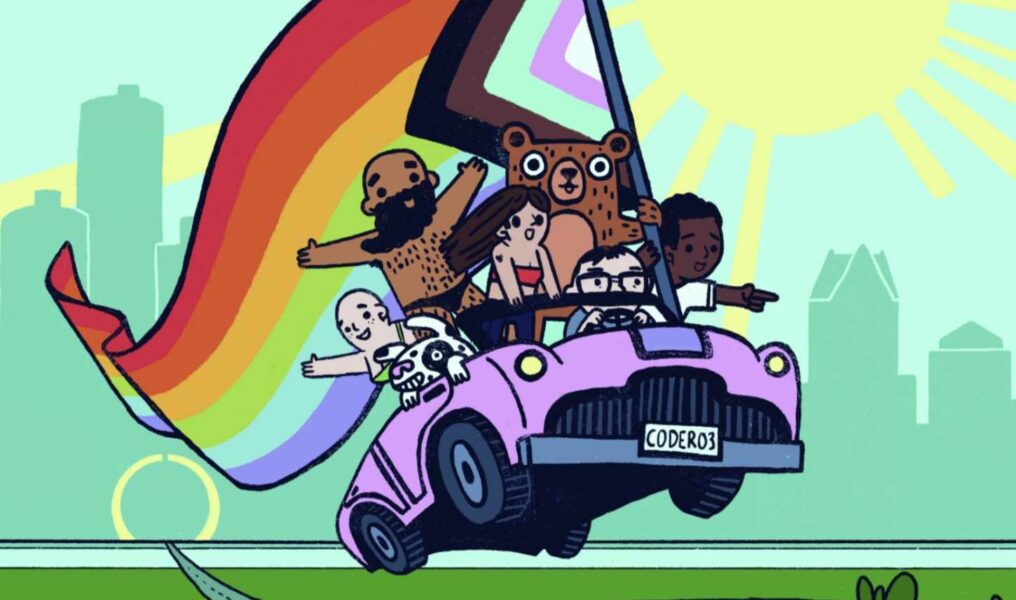
When I was a closeted kid, the only thing I really liked about church was when the priest asked the congregation to shake a neighbor’s hand and wish them peace. Mass at the church my family attended mostly bored me to the point of frequent nod-offs, and though the Catholic Church has got a lot wrong (so much, really), they got something right with the whole “peace be with you” ritual. Given these were people I didn’t know, it always seemed like just the right amount of kindness, and it was one of my earliest introductions to a community that wasn’t my own blood family.
But it wasn’t until college where I would find my people, and around them I could comfortably be myself, entirely. It was at Eastern Michigan University’s student newspaper, the Eastern Echo, where I fit in so naturally with this diverse group of aspiring journalists. I felt an ease around these peers of mine, a “found family” before I even truly knew what that meant. Together, we inhaled greasy slices of pizza and guzzled Cokes together in a basement production office, but even better, and having just come out, they were more than OK with me being gay — in fact, I felt celebrated because of it.
They didn’t care when I wrote about an EMU alum who graduated and went on to become a hot male model that I described his abs, in the very first sentence (of course), as “chiseled.” (My editor at the time told me, and he was right: “Whoever doesn’t know you’re gay will know now.”) My mom, who had almost no relationship with both of her parents (one would wash my mouth out with soap when she didn’t like what I said, one didn’t make much of an effort to see us), knew something about chosen family that she was inadvertently teaching me at the time — you can be closer to your friends than members of your actual family. This is a healthy thing; it’s sustaining. And actually, sometimes it’s all we have.
Queer people know this, perhaps, more than anyone since many of us are disowned by our own families, or just never quite feel like we fit in with our heterosexual blood relatives. Now that most of my own family members are having babies and raising families and I am not, I have accepted how different we really are, even just fundamentally. But coming from a big Maltese family, I always felt a cultural pressure to consider blood family my only family.
What does any of this have to do with Pride? Well, this year, the idea of “chosen family” resonates deeply. Like so many of us, I’m weathering a personal storm as a close family member’s harmful behavior of late weighs heavy on my heart. I tell you this because I know my story is a common one, and part of why Pride means so much to me this year: how, more than ever, given a years-long global pandemic that still endures, it’s about the families we create when we don’t feel loved or safe around our own. And my immense gratitude for mine. Jim and Aric and Alison and Ross and Lauren and Michael and Mathias and Kris and Mark and Ray, and on and on. These are the people who have allowed me to be something that, around other people, I can’t be: the best version of myself.
These last few years have taken a lot out of us. We may never know just how much since we’re still living in it and may be for quite some time still. Personally, I unexpectedly moved a couple of times; those transitions were rough. Amid uncomfortable change and turmoil, I started overseeing all the stories you read in these pages in my new position as Editorial Director, a role I don’t take lightly. There was a breakup somewhere in there too. Then what we all dealt with: the everyday anxiety and fear of living in an unnatural state of pandemicness. Shelter in place, wear a mask, wash your Grape Nuts.
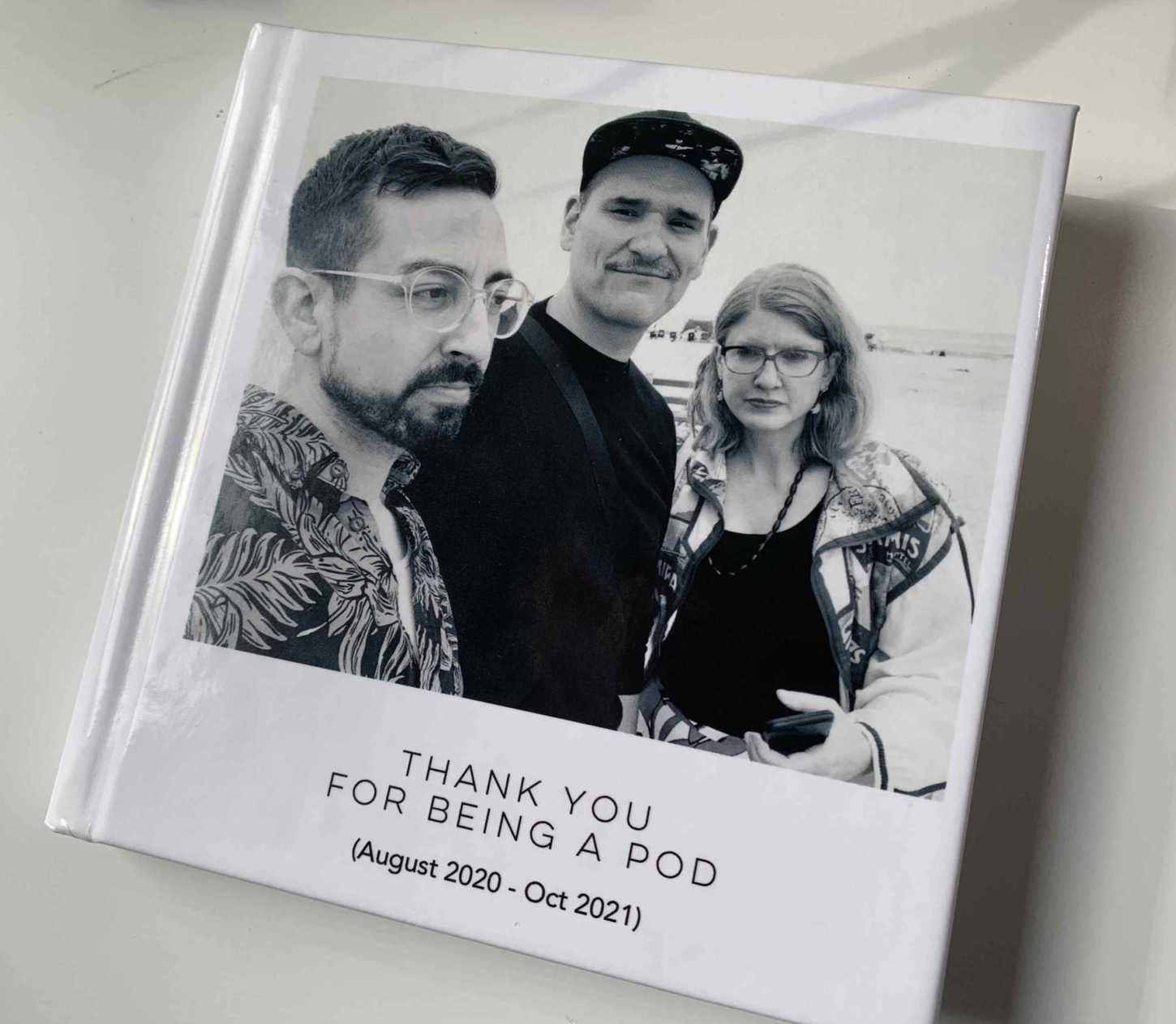
Now, I keep a book by my bed. It’s one Jim gave me for Christmas — “Thank You For Being a Pod,” a self-curated book of photos of us from August 2020 to October 2021, our could’ve-been-harder pandemic year. There wasn’t just crying the day he handed it to me — there were crying noises. Only a friend like Jim can make you feel a love so deep it can carry you through anything.
During a year of anxiety-inducing uncertainty, I lived with Jim and his husband Aric when I wasn’t sure where else I would go. My insensitive landlord came back to live in her condo, failed to give me much notice, and there weren’t many rental options then. So we lived together. A community of three. The worst and best year of my life. After my breakup, I came home to them on the couch, cried more sloppy tears, talked and watched them watch “Real Housewives” before I saw myself off to a surprisingly sound sleep just knowing they were… there.
Then, there they were again when I grieved the death of my 16-year-old family dog, Maddie. I even started calling their home “Hope House” as a joke. The joke, though, was always rooted in something very real because how could it not be. Simply by having them around, by taking long winter walks together, projectile-laughing at dogs doing stupid things on TikTok and toasting to Biden’s win and the optimism of what that meant for our country and the LGBTQ+ community, I felt like everything was going to be OK.
And so when I think about Pride now, I think about our time together — as a pandemic pod, as a little loving chosen family — and I cherish it, and I think about all of my queer and ally friends. I think about “Hope House.” How that community of three is just a small part of an ever-expanding “Hope House” of found families keeping each other feeling safe and loved and, in these times, OK enough to keep going.


